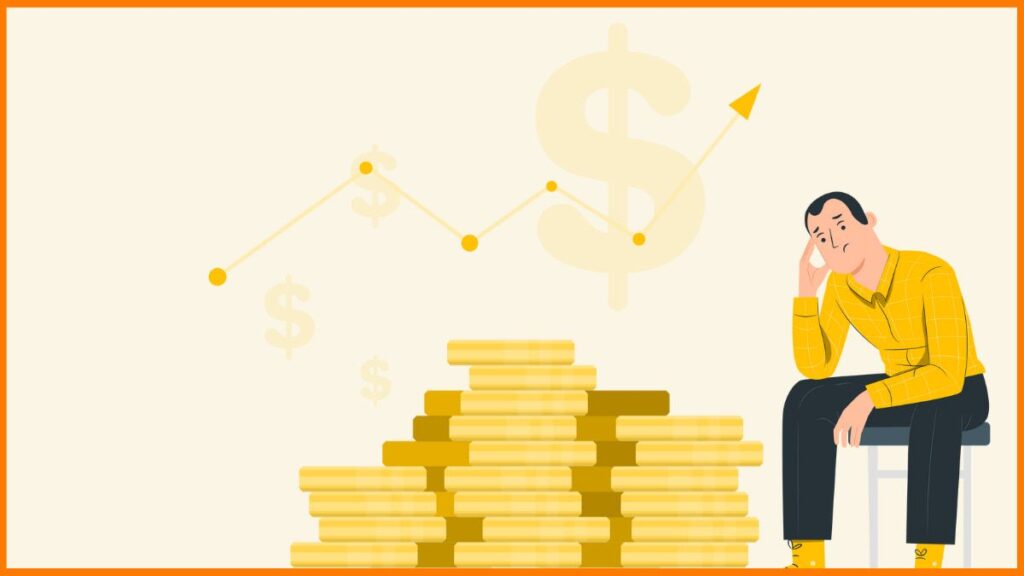Introduction
A sustained increase in the average level of prices for goods and services over time in an economy is known as inflation. Although a developing economy naturally experiences mild inflation, its consequences on assets can range from minor to serious.Examining How Inflation Affects Investments.The long-term harm inflation may do to the actual worth of an investor’s money is frequently underestimated by investors.
This article will discuss how different investment vehicles are affected by inflation, how to lessen its effects, and how investors may create robust portfolios in inflationary times.
Comprehending Inflation
Its critical to comprehend the definition and measurement of inflation before delving into its consequences.
Describe inflation
The gradual reduction in buying power is referred to as inflation. The same amount of money may purchase fewer products and services when inflation increases. For instance something that cost $100 last year now costs $105 if inflation is 5%.
The Reasons Behind Inflation

Inflation can be caused by a number of variables including
When demand for products and services outpaces supply this is known as demand-pull inflation.
How Do We Calculate Inflation
Price indexes are commonly used to measure inflation
The Consumer Price Index CPI calculates the average change in consumer prices.
The Producer Price Index or PPI monitors price fluctuations from the viewpoint of sellers.
For a steady perspective core inflation does not include volatile goods like food.
The Significance of Inflation to Investors
The actual return on investments is directly impacted by inflation. Your real buying power may be diminished or eliminated by inflation even if your investment generates a good nominal return.
Comparing Nominal and Real Returns
The percentage increase on an investment before accounting for inflation is known as the nominal return.
The nominal return less the rate of inflation is the real return.
For instance your real return is only 2% if your investment yields 6% and inflation is 4%.
When assessing investment success during inflationary times it is essential to comprehend this disparity.
Effects of Inflation on Various Investment Types
Impact of Cash and Savings Accounts Very Adverse
The most susceptible currency to inflation is cash. As inflation increases the value of money kept in savings accounts or beneath mattresses decreases.
The impact of bonds particularly fixed rate bonds is negative.
In periods of strong inflation fixed income assets such as corporate or government bonds suffer. The principle and future interest payments lose buying power due to inflation.
Because of locked-in rates long term bonds are particularly vulnerable.
This risk can be mitigated with inflation protected assets such as U.S. Treasury Inflation Protected assets TIPS.
Stocks and Equities Mixed Impact
In the past equities have outperformed inflation over the long term. However the following factors may impair their effectiveness in the near term
Impact of Real Estate Mostly Positive

An effective inflation hedge is real estate. Inflation tends to increase property prices and rentals protecting investors and landlords.
As inflation rises, so does rental revenue.
Compared to financial assets real assets such as real estate retain their fundamental worth better.
Positive Impact of Commodities
Gold oil and agricultural products are examples of commodities that frequently do well under inflation.
Historically gold has been viewed as a hedge against currency depreciation and inflation.
Oil and other energy commodities increase in tandem with inflation particularly when that inflation is cost-push.
The Impact of Cryptocurrencies: Uncertain/Speculative
Because of their restricted quantity, cryptocurrencies like Bitcoin have been marketed as an inflation hedge. However they are dangerous and unpredictable due to their limited history and extreme volatility.
Historical Illustrations of the Effects of Inflation
The Stagflation of the 1970s
The 1970s saw slow economic development and rising inflation in the United States. Real assets and gold rose in value but traditional fixed-income investments did not. Real returns were frequently negative, and stocks were very volatile.
The Financial Crisis of 2008
Despite extensive monetary stimulus, inflation was low, which helped equities do well. This was a rare setting in which moderate inflation coexisted with low interest rates and quantitative easing.
Inflation Increase in 2021–2022
Inflation reached its greatest level in four decades as a result of pandemic stimulus expenditure and supply chain disruptions. The markets for stocks, bonds, and real estate were all impacted by the Federal Reserve’s sharp increase in interest rates.
Central Bank Policy and Inflation
Monetary policy is a tool used by central banks such as the US Federal Reserve to control inflation
Changes in Interest Rates
Increased interest rates cool the economy and control inflation by reducing borrowing and expenditure. They can, however slow down the development of investments and increase the cost of debt.
Tightening Quantitatively
QT entails selling government securities in order to decrease the money supply. It usually goes hand in hand with restrictive monetary policy and increasing rates.
Effect on Investors
During tightening cycles equities frequently encounter challenges.
As interest rates climb bonds lose value.
During the changeover commodities can rise.
Investing Techniques to Protect Yourself from Inflation
The process of diversification
Diversification is the golden rule of investment. Asset classes that respond differently to inflation are included in a well-balanced portfolio, which lowers total risk.
Make Real Asset Investments
Infrastructure, commodities, and real estate are examples of assets with inherent worth that frequently do well in inflationary times.
Securities Protected by Treasury Inflation (TIPS)
TIPS are inflation-adjusted government bonds. They provide protection against the decline in buying power since its primary rises in tandem with the CPI.
Stocks That Pay Dividends
Businesses that regularly raise and pay dividends might offer a steady source of income that could surpass inflation.
conclusion
whilst inflation is an inevitable economic force it doesnt have to ruin your financial future. Here are some tips for making wise investments in an inflationary world. You may protect and even increase your wealth by being aware of its effects diversifying your investments and implementing inflation hedging techniques.
Regardless of your investment style conservative or aggressive the most important things are to be knowledgeable diversified and long term focused. Although inflation may alter the situation you may still have a successful investing trip if you prepare beforehand.

